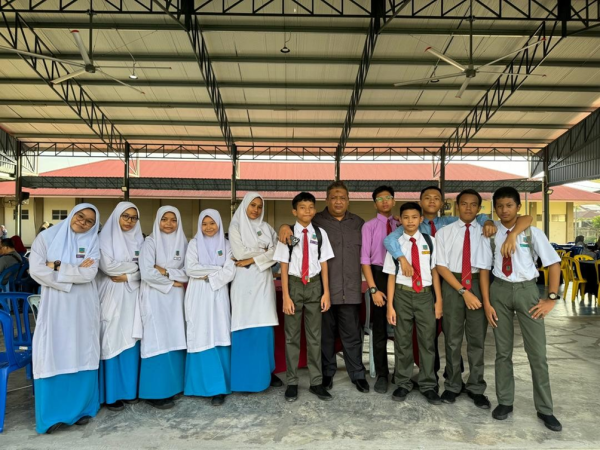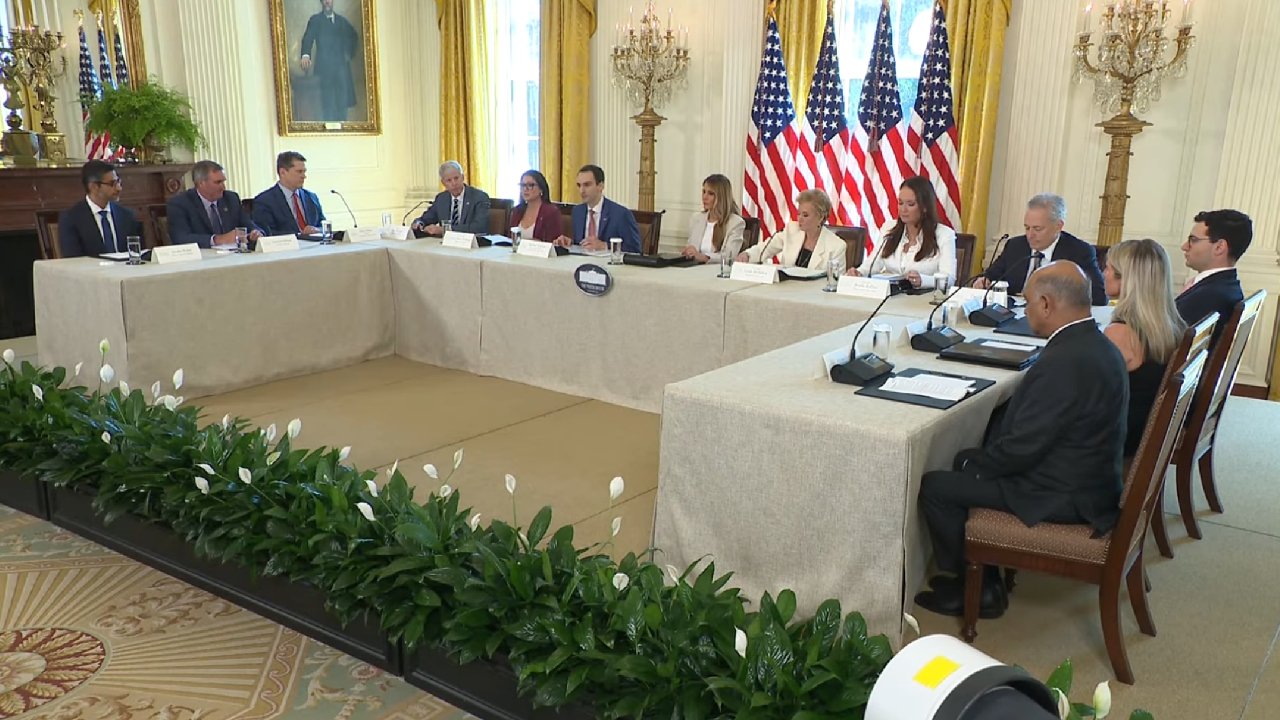Education
International unis eye Bangladesh for campuses and dual programs

Last week, Bangladesh’s University Grants Commission (UGC) chairman, professor SMA Faiz, met in Dhaka with a delegation from the UK’s University of East Anglia to discuss transnational education opportunities.
The meeting, which also included representatives from MH Global Group and Bangladesh University of Professionals (BUP), discussed how the University of East Anglia could establish a campus in Bangladesh or launch joint and dual degree programs with the BUP and the Military Institute of Science and Technology.
While Faiz assured the delegates of full support in line with existing regulations, Steve McGuire, pro-vice-chancellor (international) at the University of East Anglia, stressed the institution’s commitment to “upholding strict academic and administrative standards for its branch campuses and dual degree programs”.
The meeting comes just months after the UGC announced its plans to develop a “clear and stringent” guideline for formulating a policy around international university branches in Bangladesh.
A high-powered committee, consisting of experienced professors, is actively preparing a guideline policy. Once this policy is finalised, we will be able to decide on the approval of foreign campuses
Mohammad Anwar Hossen, UGC member
According to UGC member Mohammad Anwar Hossen, who heads the sub-committee on private universities, a high-powered committee has been formed to draft the policy.
The committee includes prominent academics from leading public and private institutions such as the University of Dhaka, BUET, North South University, and Jahangirnagar University.
“We are assessing how beneficial foreign campuses will be for Bangladesh. A high-powered committee, consisting of experienced professors, is actively preparing a guideline policy. Once this policy is finalised, we will be able to decide on the approval of foreign campuses,” stated Hossen, in an interview with a Bangladeshi media outlet.
“We are closely examining whether student interests might be hampered, or if public and private universities would come under undue pressure. Private universities have reached a certain standard. However, when we consider the living standards, salary structures, and research facilities for public university teachers, the picture is less satisfactory. If foreign universities begin operating here, our educators might face even more strain.”
Though the UGC plans to finalise the policy only after thorough review and national interest assessments, the draft requires at least 25,000 square feet of campus space, full-time academic staff, a fixed deposit of Tk 5 crore (£306,400), and a non-refundable application fee of Tk 10 lakh (£6,120).
Currently a Malaysian institution, UCSI University has become the first international institution to receive approval from both the UGC and the ministry of education to establish a branch campus in Bangladesh, with academic activities already in effect in Dhaka.
Education
Rwanda Launches Landmark Day of AI Program to Transform Education

In a groundbreaking step toward preparing the next generation for an AI-driven future, the Day of AI Rwanda program was launched in partnership with the Rwanda Ministry of Education and the Rwanda Education Board (REB). The initiative focuses on equipping educators with the knowledge and tools to integrate artificial intelligence (AI) into the country’s existing ICT curriculum, enabling students to both use AI and critically evaluate its impact on society.
Building AI Literacy Through Education
The program trains teachers on incorporating AI concepts into classroom lessons while emphasizing ethical decision-making, responsible use, and problem-solving. Developed by MIT researchers in collaboration with K-12 educators, the Day of AI curriculum is freely available and used in more than 170 countries.
The Rwandan rollout represents the largest coordinated national deployment of the program in Africa so far, with newly trained master educators returning to their districts to share knowledge and scale the initiative nationwide.
“This was one of the most impactful, hopeful experiences I’ve had in this work,” said Dr. Randi Williams, a key partner in the program. “The enthusiasm, curiosity, and leadership shown by these educators was inspiring. Together, we’re planting the seeds of a generation that will understand, build, and lead with AI.”
Leadership and Strategic Vision
Dr. Williams praised Rwanda’s visionary commitment to AI readiness, crediting the leadership of Minister of Education Joseph Nsengimana and the REB team, alongside the Ibrahim El Hefni Technical Training Foundation, which provided critical support for the initiative.
Professor Cynthia Breazeal, Director of the MIT RAISE Initiative, described the program’s launch as a model for other nations:
“The launch of Day of AI Rwanda is not only a powerful moment for us, but also a blueprint for how countries can prioritize AI readiness in education with both vision and urgency.”
Reflections from Rwandan Education Leaders
At the program’s closing ceremony, Rwandan education leaders emphasized the country’s ambition to integrate AI into all levels of schooling.
Eden Mamo, speaking on behalf of Minister Nsengimana, highlighted how the initiative aligns with Rwanda’s Vision 2050, which seeks to build a knowledge-based economy powered by innovation:
“This moment places education at the very heart of Rwanda’s AI journey. Our youth must not only use AI but build it, question it, and improve it. This initiative shows Rwanda has chosen to ride the AI wave consciously and ethically.”
Dr. Diane Segati, Director of ICT at REB, echoed this vision:
“We want AI to be used in all schools, by all students, and by all teachers. When we first introduced ICT, we started small. Now, we’ve integrated ICT into education, and we are moving to the next level with AI. We are grateful to MIT RAISE, Day of AI, and Dr. Randi for their support and collaboration.”
Shaping Rwanda’s Digital Future
The Day of AI Rwanda program marks a milestone in the nation’s digital transformation strategy, ensuring that Rwandan students and educators are not only consumers of AI technologies but also innovators shaping their future. With master educators leading localized training and the integration of AI into ICT programs, Rwanda is positioning itself as a continental leader in AI literacy, education reform, and future-ready skills development.
Education
Malaysian AI Classroom Model to Transform Global Education

PRESS RELEASE
Published September 5, 2025
A Malaysian AI model, developed in Ampang, is transforming education by offering equal learning opportunities for students and valuable support for teachers.
Malaysia, 5th Sep 2025 – Born in Malaysia and proven in real classrooms, this AI-powered model is ready to scale–giving teachers relief, students equality, and schools a practical tool for 21st century learning.
Before the headlines, a dedicated teacher, a fearless student, and a battered laptop at Sekolah Menengah Kebangsaan Dato’ Ahmad Razali (SMKDAR)–a public school in Ampang, Selangor–ignited a modest AI revolution.
Razman Salleh, a Malaysian AI strategist who took generative AI directly into SMKDAR, bypassing lab tests and policy delays. What began as a quick fix for overwhelmed teachers has become a field-tested, modular AI classroom model– ready to scale. Inspired by both educational leaders, Tan Sri Dr. Mohd Daud Bakar, and Razman, they have proven Malaysia’s AI-for-education works in the real world.
Resetting the Classroom
In February 2024, a conversation at SMKDAR triggered a simple question: What if an AI chatbot could be a student’s personal tutor and a teacher’s extra set of hands?
The goal was not to digitise textbooks, but to make classrooms more interactive.
When piloted, the impact was instant. Teachers gained time to mentor. Students took more ownership of learning. “Some students don’t need more notes,” Razman explains. “They need a safe, responsive space to ask questions–anytime.”
The “AI Chatbot Pilot Project ” Breakthrough.
Kicking off the project at SMK Dato’ Ahmad Razali in Ampang, key educators secured the District Education Office’s approval to test the groundbreaking AI Chatbot initiative. With the dedicated efforts of a team of 12 teachers and 12 selected students, the project achieved remarkable traction, demonstrating the school’s pioneering role in educational innovation. Crucially, the pilot was made possible through funding from local constituency resources dedicated to educational advancement, laying the foundation for this transformative initiative. On the other hand, Razman developed and trained a prototype GPT 4-powered AI
Chatbot for SMKDAR, aligned to Malaysia’s KSSM (Standard Secondary School Curriculum), which answered syllabus-based questions, gave real-time writing feedback, and explained complex topics in simple steps.
Results were compelling:
From 11 core and elective subjects, students used the AI Chatbot mainly in science (19%), Malay Language (19%), Mathematics (18%), and Additional Mathematics (18%). This highlights AI’s vital role in supporting core subjects, advancing Malaysia’s STEM and literacy goals.
Further statistics:
- 40% of students grasped difficult concepts more clearly
- 30% saved significant homework and research time
- Over 50% wanted continued AI access
For students, it was a tireless tutor. For teachers, it was valuable support.
AI Classroom World: Unified Command Centre for Smarter, Simpler Schools.
After months of deep observation and iterative experimentation, Razman Salleh has developed a fully unified education ecosystem designed to digitize entire classrooms and schools seamlessly. The platform serves as a “command center” for modern schools, integrating school management, task automation, and AI-powered analytics in one streamlined hub.
With its intuitive interface and full-stack automation, schools can run more efficiently without juggling multiple apps or complex integrations.
Key Features of AI Classroom World:
In just two days, schools can go fully digital without hassle. The platform is preconfigured with all essential class and school-wide modules, eliminating lengthy setup times. Teachers simply provide basic school details, and activation is instant. Among key features include
- Centralised School Manager – One Dashboard for All Schools
Run multiple schools from a single hub. Student records, reports, and timetables sync automatically, giving leaders clear insights at a glance.
- AI Task Manager – Work Smarter, Teach Better
AI suggests priorities, deadlines, and next steps so teachers can focus less on admin and more on impact.
- Project Hub – Real-Time Teamwork Made Simple
From class projects to school-wide programs, everyone collaborates in one shared workspace with live updates and resource sharing.
- Custom School Portal – Your Brand, Your School Online
Each school gets its own branded portal with instant access to assignments, reports, announcements, and learning tools for students, parents, and teachers.
Simple onboarding and AI-powered workflows mean teachers are confident from day one — freeing them to focus fully on student success.
AI Classroom World is more than just software — it’s a strategic partner for the whole digilisation ecosystem of modern school. It eliminates administrative friction, centralizes operations, and empowers educators to focus on what matters most:
teaching “It adds clarity, not noise,” says Razman. Dr. Mohd Daud Bakar adds: “AI Classroom World empowers classrooms to ignite, mentor, and transform young minds.”
Going Global
As results spread, so did interest. Backed by Dr. Mohd Daud Bakar’s academic credibility and Razman’s leadership in building AI-driven education solutions, AIClassroom.World is driving education reform through the transformative power of AI. As Malaysia’s Prime Minister Dato’ Seri Anwar Ibrahim remarked:
“AI’s success is not measured by how advanced the technology is, but by how well it can uplift people’s livelihoods — ensuring opportunities are created, challenges are overcome, and no one is left behind.”
AI Classroom World is set to revolutionize education on a global scale. Its clear goals underscore a commitment to widespread transformation and human-centric innovation:
- Reaching 300,000-400,000 students with personalized, adaptive learning.
- Empowering over 20,000 educators with intuitive, burnout-mitigating AI tools.
- Activating 10,000 digital classrooms, ensuring resilient, offline-first education access, especially in underserved regions.
A Malaysian Answer to a Global Crisis.
Unlike many EdTech ventures chasing high-income markets, AIClassroom.World began in Malaysia’s public school. “We built and tested it where it matters–inside real classrooms,” says Razman.
From Q4 2025, AI Classroom World will invite partnerships with public, private, and humanitarian networks including the Organization of Islamic Conference (OIC) and Education Cannot Wait. The mission: restore dignity to classrooms, empower educators, and leave no student behind.
Currently Razman Salleh and his team are offering more than software–they’re giving underserved classrooms a second chance.
“When the world appears to have failed our children, we offer them a second chance –with clarity, courage, and compassion,” says Razman.
About AI Classroom World
AI Classroom World is an innovative educational platform designed to revolutionize classrooms globally. Developed by Razman Salleh, it provides AI-driven solutions to digitize schools, support teachers, and create interactive learning experiences for students. The platform integrates school management, AI-powered analytics, and task automation into one unified hub, aiming to create a smarter, simpler school environment.
Website: www.aiclassroom.world
Media Contact
Organization: Ai Classroom World
Contact Person: Razman Salleh
Website: http://www.aiclassroom.world/
Email: Send Email
Country: Malaysia
Release id: 33485

COMTEX_468567481/2903/2025-09-05T08:30:14
Education
Microsoft, Google, Anthropic Pledge Major AI Education Push at White House Summit

Top tech giants including Microsoft, Google, Amazon, and Anthropic announced a wave of new commitments to advance AI education across the U.S. at a White House event on Thursday. The pledges, revealed at a meeting of the AI Education Task Force, include free access to powerful AI tools for students, new funding for educators, and broad-scale job training programs hosted by First Lady Melania Trump.
This major public-private partnership aims to prepare America’s students and workforce for an AI-driven future, ensuring the nation remains competitive. Underscoring the initiative’s urgency, the First Lady declared, “The robots are here. Our future is no longer science fiction.”
A Coordinated Push for National AI Literacy
The September 4 event represents the public face of a coordinated effort by the White House to forge a national AI education strategy. The administration is leaning heavily on the private sector to provide the tools and funding necessary to build AI fluency from K-12 classrooms to the professional workforce, a move officials see as critical for ensuring long-term American competitiveness in the field.
Hosted by First Lady Melania Trump, the meeting brought together the White House’s AI Education Task Force, which includes cabinet secretaries and top tech CEOs. This gathering formalizes the administration’s push, which is built upon the framework of an AI Education Executive Order and the broader “Pledge to America’s Youth: Investing in AI Education” that companies have signed on to.
The entire initiative is anchored by the newly launched Presidential AI Challenge, a national competition where students and educators are encouraged to develop AI-powered solutions for problems within their communities.
The corporate commitments announced at the summit are not standalone gestures; they are specifically designed to directly support this and other federal efforts, providing the resources and tools needed for participants to succeed.
Pledges from the Private Sector
Microsoft unveiled a sweeping set of commitments, leading with an offer to provide a free year of Microsoft 365 Personal—which includes its powerful Copilot AI assistant—to every college student in the United States, including those at community colleges.
To further bolster skills, the company is unlocking free access to AI-focused LinkedIn Learning courses for both students and teachers, culminating in certifications that can be added to their profiles. Additionally, Microsoft is funding $1.25 million in prizes through the Presidential AI Challenge to recognize top educators in every state who are pioneering AI-powered learning.
Rivals Google and Amazon also made substantial pledges. Google announced it would allocate $150 million from its previously established $1 billion education fund toward grants supporting AI education and digital wellbeing.
Amazon, meanwhile, is focusing on broad-scale training, committing to help train 4 million people in AI skills and enable AI curricula for 10,000 U.S. educators by 2028. The company will also provide $30 million in AWS credits for educational organizations using cloud and AI technology.
Anthropic, a key AI research lab, detailed a more targeted, multi-pronged approach. The company is investing $1 million over three years to fund PicoCTF, Carnegie Mellon University’s hands-on cybersecurity program for middle and high school students.
It is also developing and launching a comprehensive AI Fluency curriculum for K-12 and higher education instructors. Critically, this curriculum is Creative Commons licensed, making it freely available for anyone to use or modify, and is designed to work with any AI system, ensuring equitable access regardless of a school’s resources.
The Classroom Arms Race: From Cheating Tool to Socratic Tutor
These announcements are the culmination of an intensifying “arms race” among tech rivals to embed their AI into the lucrative education market. The last year has seen a flurry of launches, from Anthropic’s ‘Claude for Education’ to OpenAI’s ‘ChatGPT Edu’ and Google’s ‘Gemini for Education’ suite.
This competitive frenzy has driven a strategic industry-wide pivot. Companies are reframing their AI, once criticized as a simple cheating tool, into a “Socratic tutor.” This new approach focuses on guiding students through problems rather than just providing answers.
The shift was partly a response to student feedback. Anthropic’s education lead, Drew Bent, revealed that students themselves worried about “brain rot” from passive AI use.
“We found that they themselves realized that when they just copy and paste something directly from a chat bot, it’s not good for their long-term learning,” he explained. This user-driven demand has fueled the development of more educationally sound tools.
This pedagogical alignment is now a key competitive front. As Bent noted, “I think it’s great that there’s a race between all of the AI labs to offer the best learning mode.” This trend was also seen in the launch of OpenAI’s “Study Mode” and Google’s “Guided Learning”.
A Cautious Welcome from Educators
Proponents argue these tools can be a great equalizer. OpenAI’s head of education, Leah Belsky, claims “we can begin to close the gap between those with access to learning resources and high-quality education and those who have been historically left behind,” framing the technology as a way to democratize access to personalized tutoring.
Even the language learning app Duolingo has embraced an “AI-first” strategy for content creation.
However, the rapid, corporate-led push into the classroom has been met with some skepticism from the education community. Experts question the long-term implications of relying on free, proprietary tools from tech giants, raising concerns about data privacy and pedagogical influence.
Despite the cautious welcome, the trend toward AI integration seems irreversible. The ultimate responsibility now falls on educators and institutions to weigh the promise of 24/7 AI tutoring against the risks of students learning flawed information or bypassing the cognitive effort essential for deep learning.
-

 Business1 week ago
Business1 week agoThe Guardian view on Trump and the Fed: independence is no substitute for accountability | Editorial
-
Tools & Platforms3 weeks ago
Building Trust in Military AI Starts with Opening the Black Box – War on the Rocks
-

 Ethics & Policy1 month ago
Ethics & Policy1 month agoSDAIA Supports Saudi Arabia’s Leadership in Shaping Global AI Ethics, Policy, and Research – وكالة الأنباء السعودية
-

 Events & Conferences4 months ago
Events & Conferences4 months agoJourney to 1000 models: Scaling Instagram’s recommendation system
-

 Jobs & Careers2 months ago
Jobs & Careers2 months agoMumbai-based Perplexity Alternative Has 60k+ Users Without Funding
-

 Education2 months ago
Education2 months agoVEX Robotics launches AI-powered classroom robotics system
-

 Funding & Business2 months ago
Funding & Business2 months agoKayak and Expedia race to build AI travel agents that turn social posts into itineraries
-

 Podcasts & Talks2 months ago
Podcasts & Talks2 months agoHappy 4th of July! 🎆 Made with Veo 3 in Gemini
-

 Podcasts & Talks2 months ago
Podcasts & Talks2 months agoOpenAI 🤝 @teamganassi
-

 Education2 months ago
Education2 months agoMacron says UK and France have duty to tackle illegal migration ‘with humanity, solidarity and firmness’ – UK politics live | Politics























